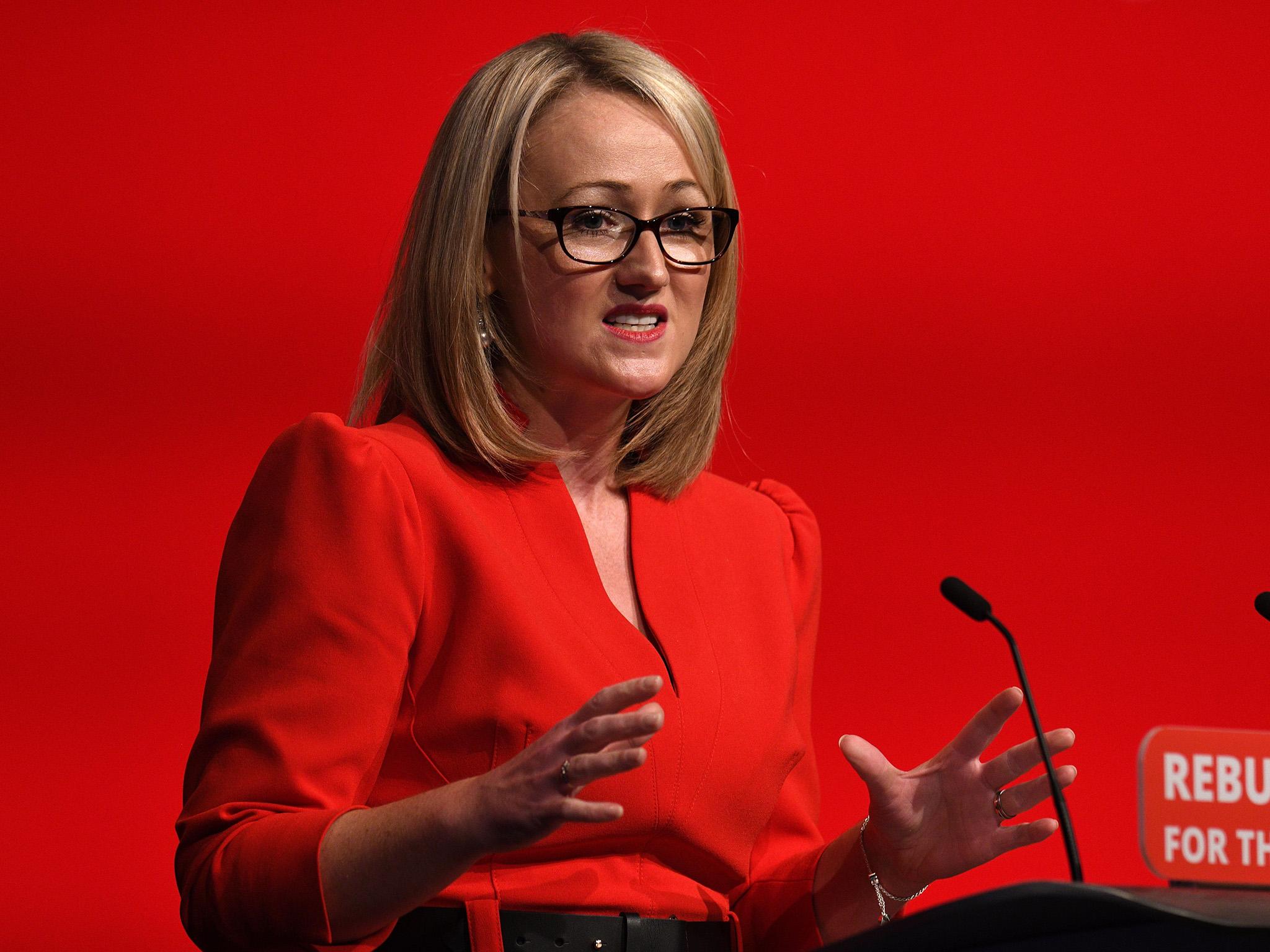Labour frontbencher backs radical plan towards net-zero carbon emissions by 2030
Labour also due to unveil new plans to build 37 new offshore wind farms

Your support helps us to tell the story
From reproductive rights to climate change to Big Tech, The Independent is on the ground when the story is developing. Whether it's investigating the financials of Elon Musk's pro-Trump PAC or producing our latest documentary, 'The A Word', which shines a light on the American women fighting for reproductive rights, we know how important it is to parse out the facts from the messaging.
At such a critical moment in US history, we need reporters on the ground. Your donation allows us to keep sending journalists to speak to both sides of the story.
The Independent is trusted by Americans across the entire political spectrum. And unlike many other quality news outlets, we choose not to lock Americans out of our reporting and analysis with paywalls. We believe quality journalism should be available to everyone, paid for by those who can afford it.
Your support makes all the difference.A shadow cabinet member has backed radical plans for Labour to work towards slashing greenhouse gases by 2030 ahead of a potential clash with union leaders
Rebecca Long-Bailey, the shadow business secretary, heaped praise on a “fantastic” motion tabled by campaigners for a Green New Deal, which would “work towards a path to net-zero carbon emissions by 2030”.
But the bid goes up against a separate motion without a date to cut carbon emissions, which has been backed by the GMB union amid concerns that a shorter timeframe could put jobs at risk.
Labour has come under pressure from activists to shift to a more radical stance on climate change, as its official policy is currently to meet net-zero before 2050.
The clash comes as Ms Long-Bailey was due to unveil new plans to build 37 new offshore wind farms if elected, which would provide electricity for 57 million households.
Speaking at a fringe event, Ms Long-Bailey said: “The motion that Labour for a Green New Deal put forward is fantastic and I support it.”
The frontbencher said: “I think there’s another motion that’s gone through and I understand there have been discussion groups in the room.
“But I think getting there as quickly as we can, by 2030, provided – and I made this point to the room and this is reflected in the motion that we got which is great – provided that we’ve got a credible plan to back it up and provided that social justice is at its very heart to protect workers and ensure there’s a just transition.”
Delegates spent hours hammering out the two compromise positions ahead of Tuesday votes, which insiders say were the longest sessions in Labour conference history.
Lauren Townsend, a trade unionist and spokesperson for Labour for a GND, said: “Delegates will have a clear choice on conference floor on Tuesday. They can either vote to lead the way on climate, responding to youth strikers calls for a Green New Deal with a 2030 decarbonisation target, or they could vote for a motion which risks leaving Labour with the least ambitious climate target of any major party.”
A Labour spokesperson said: “Everyone agreed that under Labour, Britain will have the most ambitious targets in the world.
“The motions agreed that this should be achieved through massive investment in infrastructure and skills, public ownership of key utilities and supporting climate transition in the global south. Just transition for workers and communities will be central.”
Meanwhile, Ms Long-Bailey will announce a “People’s Power” plan for a swathe of new wind farms, with a 51 per cent public stake in the infrastructure.
The cost of offshore wind tumbled below £40 per megawatt hour of electricity last week, but Labour said deployment was too slow and that jobs and revenue were being taken outside the UK.
Under Labour’s plans, a people’s power fund would be created with 20 per cent of the profits from the publicly owned stake, which would invest between £600m to £1.02bn each year into infrastructure in coastal communities.
The rest of the public profits would be reinvested into new renewables, improvements to the energy system and climate transition.
The plan would deliver 52 gigawatts of offshore wind by 2030 – equivalent to 38 coal power stations – and the new wind farms would provide electricity for 57 million households, Labour said.
The party said the proposals would create at least 67,000 new jobs in the offshore wind sector – particularly in Scotland, Yorkshire & Humber, East Anglia and North-East England.
Ms Long Bailey said: “While UK’s offshore wind industry is still young, the UK has the opportunity to avoid replicating Britain’s experience with North Sea Oil and instead to learn from countries such as Norway and Sweden by owning what is already ours.
“By taking a stake in offshore wind, we can collectively benefit from the profits, investing them back into our held back coastal communities.”
She added: “As part of our Green Industrial Revolution we can tackle the climate emergency and create a better economy for us all.”
Join our commenting forum
Join thought-provoking conversations, follow other Independent readers and see their replies
Comments